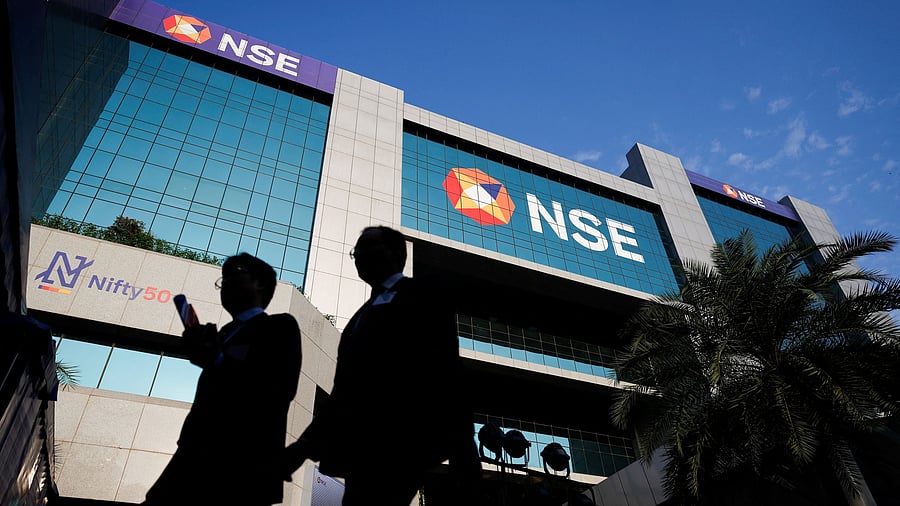
People walk outside the National Stock Exchange (NSE) in Mumbai, India, October 22, 2024.
Credit: Reuters File Photo
We expect the NSE Nifty to remain under pressure this week on account of nervousness around the global trade war. Threats from the US President Donald Trump on levying tariffs on China, Europe, Mexico and Canada among others, kept global equities on the edge. On the positive side, India’s GDP growth improved to 6.2% in the October-December quarter from 5.4% in the July-September period, in-line with market expectation. This is expected to provide some relief in the current volatile environment. Investors will be tracking key macro data including manufacturing and service PMI of US and India, European Central Bank interest rate decision and US February unemployment rate to be released this week.
Nifty plunged 5.9% in February, its fifth consecutive month of decline. On a weekly basis, it fell by 2.9% to close at 22,125, below its key support level of 22,200. The broader markets witnessed heavy selling pressure, with Nifty Midcap100 and Smallcap100 down by 5% and 6% respectively. All sectoral indices ended in the red with Nifty IT being the top loser with 8% decline, followed by Realty, PSU Banks and Energy indices falling by over 5% each.
The IT index fell sharply due to concerns over weaker-than-expected US economic data. Additionally, Donald Trump reaffirmed 25% duties on imports from Canada and Mexico to come into effect from March 4th. He also stated that goods from China will be subject to an additional 10% duty and mentioned that 25% tariffs on the EU will be announced soon, heightening fears of trade war.
The Reserve Bank of India (RBI) announced a significant policy reversal, restoring the risk weights on exposures of scheduled commercial banks to NBFCs and Micro-Finance Institutions (MFI), to their original levels. The risk weights for microloans by banks will be 75% or 100%, depending on the nature of the loan rather than 125% that RBI had implemented in November 2023. The reduction in risk weights will lower capital consumption for banks, which are likely to pass on partial benefits to NBFCs in the form of lower lending rates, in addition to the transmission from the recent repo rate revision. This could potentially reduce borrowing costs for NBFCs and support margin and growth recovery.
In another significant diversification strategy, Ultratech Cement announced its intentions to enter the cables and wires (C&W) industry with a capital expenditure of Rs 1,800 crore over the next two years. The company aims to become a major player in the segment, which could potentially pose a threat to the valuation multiples of existing C&W companies. While there will not be any impact on earnings estimates for C&W companies over the next two years, there could be a de-rating in their valuation multiples due to the entry of a sizeable player.
Technically, Nifty has broken the key support level of 22,200 and is likely to continue with weakness due to lack of follow up buying at any bounce, and weak global sentiments. The next key positional support levels are of 21800 & 21300 zones.
(The author is head of Research, Wealth Management, Motilal Oswal Financial Services Ltd)